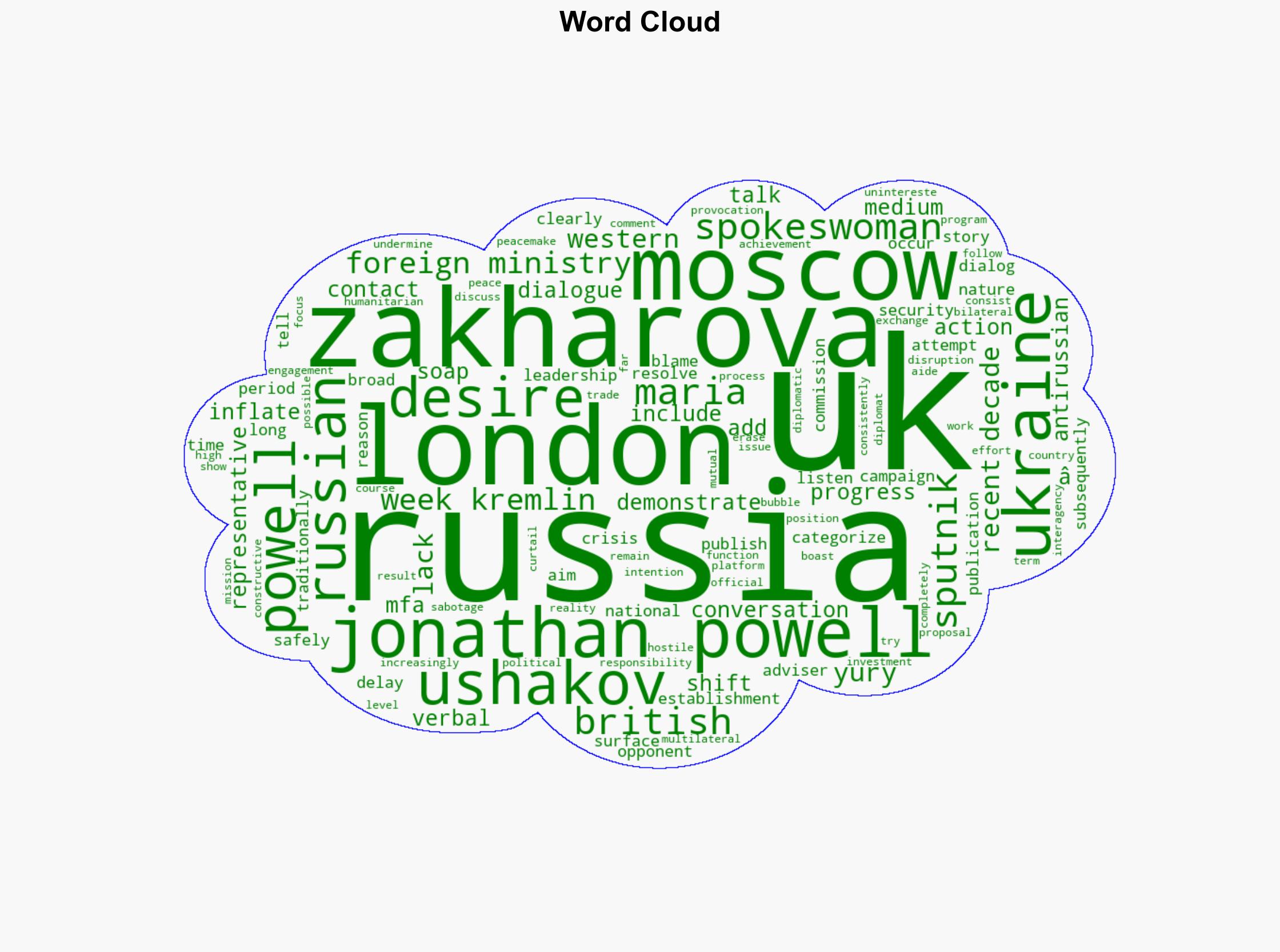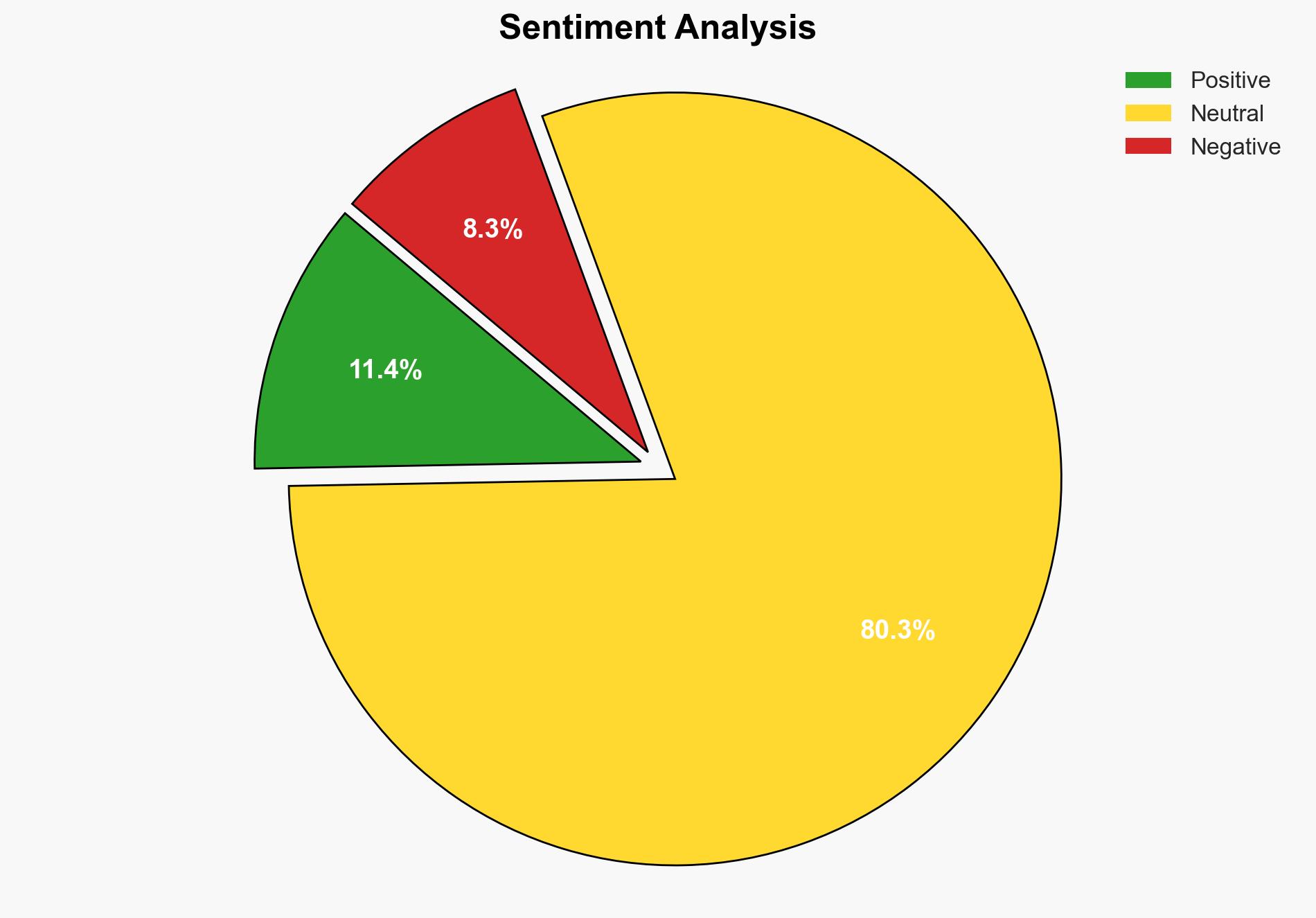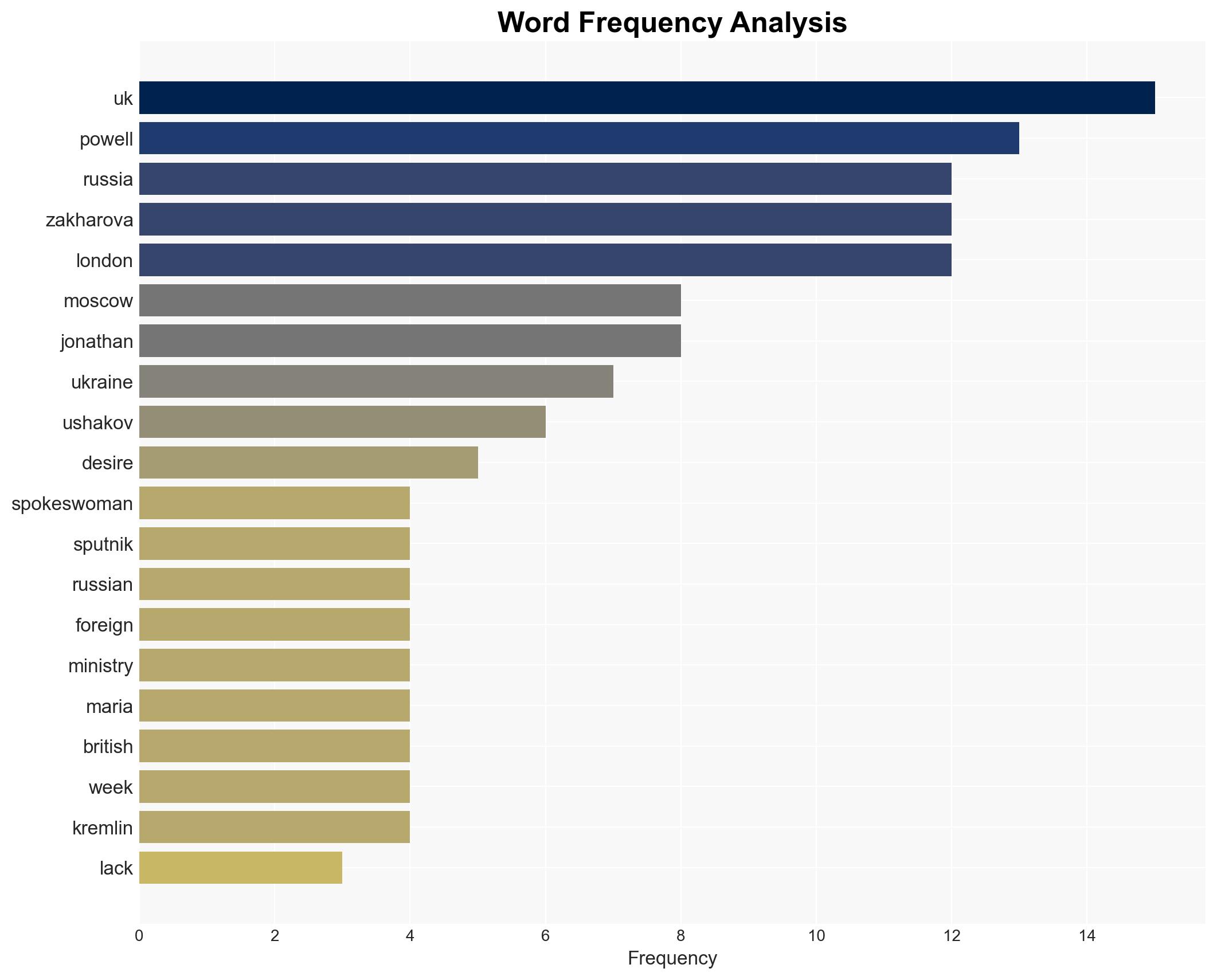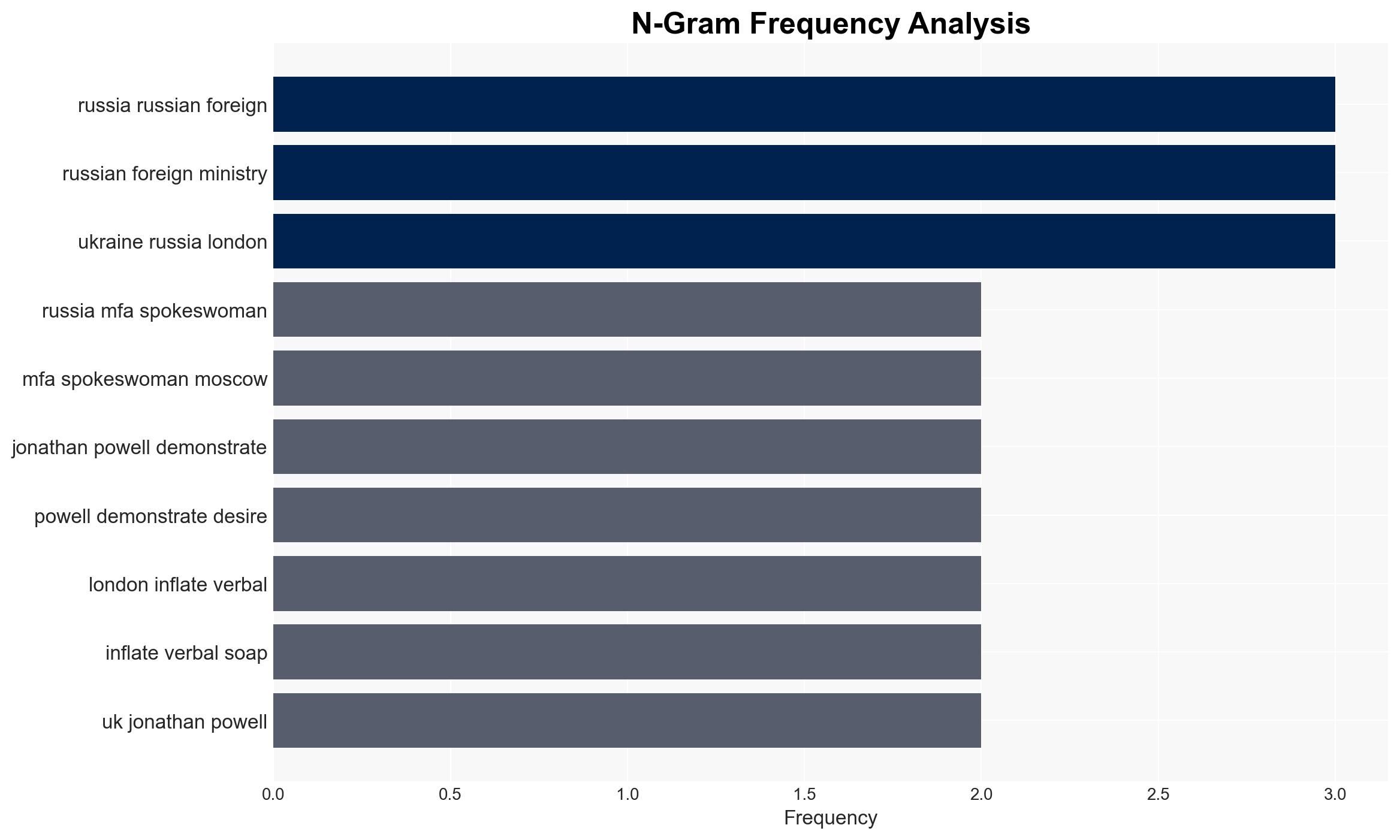UK Shows No Desire for Dialog – Russia’s MFA Spokeswoman – Globalsecurity.org
Published on: 2025-11-21
AI-powered OSINT brief from verified open sources. Automated NLP signal extraction with human verification. See our Methodology and Why WorldWideWatchers.
Intelligence Report:
1. BLUF (Bottom Line Up Front)
The strategic judgment is that the UK is unlikely to engage in meaningful dialogue with Russia in the near term, primarily due to entrenched positions and mutual distrust. The most supported hypothesis is that the UK is maintaining a strategic distance to align with broader Western policies against Russia. Confidence level is moderate due to limited direct evidence of UK intentions. Recommended action includes monitoring UK-Russia communications for shifts in tone or policy and preparing contingency plans for potential escalations.
2. Competing Hypotheses
Hypothesis 1: The UK is deliberately avoiding dialogue with Russia to align with Western allies and maintain pressure on Russia regarding the Ukraine crisis.
Hypothesis 2: The UK is open to dialogue but is hindered by internal political dynamics and public opinion, which currently favor a hardline stance against Russia.
The first hypothesis is more likely given the consistent alignment of UK foreign policy with broader Western sanctions and diplomatic efforts against Russia. The second hypothesis is less supported due to the lack of public or political signals indicating a shift towards engagement.
3. Key Assumptions and Red Flags
Assumptions: It is assumed that the UK’s foreign policy is heavily influenced by its alliances, particularly with the US and EU. There is also an assumption that public opinion in the UK is largely anti-Russian.
Red Flags: Any sudden change in UK rhetoric or policy towards Russia could indicate a shift in strategy. Additionally, increased diplomatic engagements or public statements by key UK officials could signal a change in approach.
Deception Indicators: The narrative from the Russian MFA could be an attempt to deflect blame for the lack of dialogue and to portray the UK as uncooperative, which may not fully reflect the UK’s internal deliberations.
4. Implications and Strategic Risks
The ongoing lack of dialogue increases the risk of miscommunication and escalation in tensions, particularly in the context of the Ukraine crisis. Politically, this could lead to further isolation of Russia and solidify the UK’s position within Western alliances. Economically, continued sanctions and lack of engagement could harm bilateral trade and investment. Informationally, both countries may engage in increased propaganda efforts to sway international opinion.
5. Recommendations and Outlook
- Monitor diplomatic channels for any signs of thawing relations or back-channel communications.
- Prepare diplomatic initiatives that could be proposed if a window for dialogue opens.
- Best-case scenario: A gradual reopening of dialogue channels leading to de-escalation in tensions.
- Worst-case scenario: Further deterioration of relations leading to increased sanctions and potential military posturing.
- Most-likely scenario: Continued diplomatic stalemate with periodic rhetorical escalations.
6. Key Individuals and Entities
Maria Zakharova, Jonathan Powell, Yury Ushakov.
7. Thematic Tags
Structured Analytic Techniques Applied
- Cognitive Bias Stress Test: Expose and correct potential biases in assessments through red-teaming and structured challenge.
- Bayesian Scenario Modeling: Use probabilistic forecasting for conflict trajectories or escalation likelihood.
- Network Influence Mapping: Map relationships between state and non-state actors for impact estimation.
Explore more:
National Security Threats Briefs ·
Daily Summary ·
Support us





